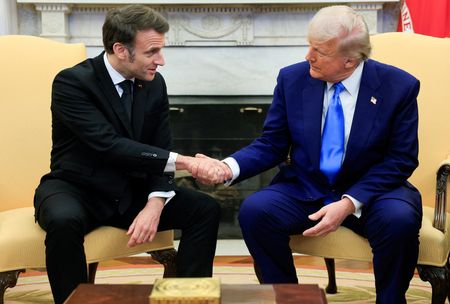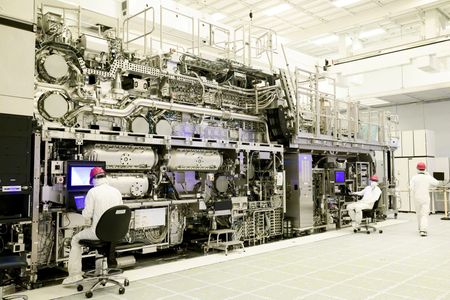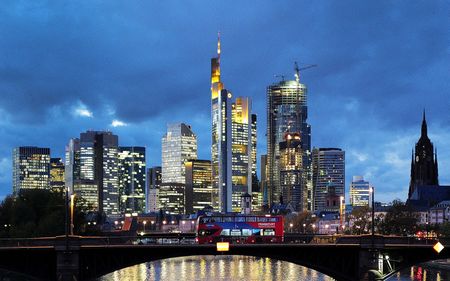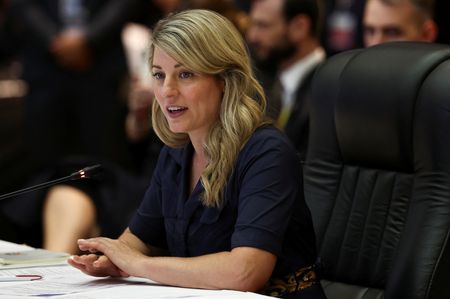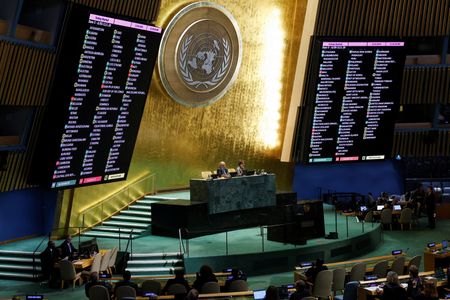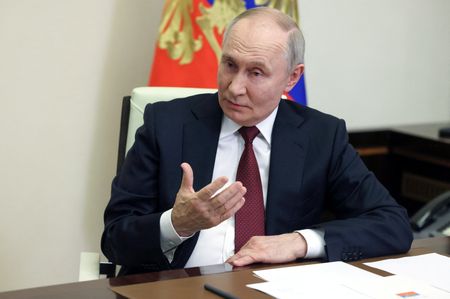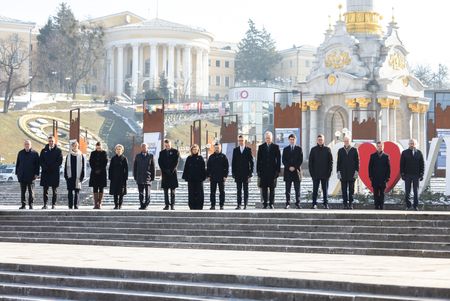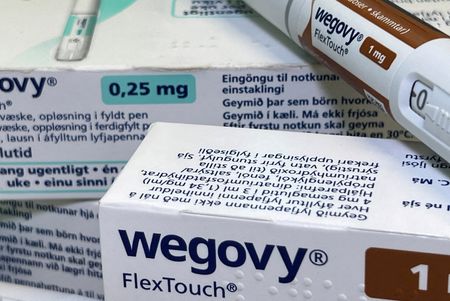By Andrea Shalal, Michel Rose and Steve Holland
WASHINGTON (Reuters) – U.S. President Donald Trump and French President Emmanuel Macron displayed stark differences on Monday in their approach to Ukraine, exposing a divide between the United States and Europe over Trump’s bid for a quick ceasefire deal with Russia.
During a day of talks between the two leaders, Trump and Macron showed a friendly rapport based on years of good ties. But Macron made clear he disagreed with Trump on some key issues as they marked three years since Russia invaded Ukraine in 2022.
Trump refused to refer to Russian President Vladimir Putin as a dictator, after calling Ukraine President Volodymyr Zelenskiy a dictator last week. Macron said it was clear that Russia “is the aggressor” in the conflict, a topic Trump wavered on last week.
“President Putin violated the peace,” Macron said at a joint press conference with Trump.
Trump expressed a desire for a ceasefire as soon as possible and said he was trying to arrange one between Ukraine and Russia. He said he could go to Moscow to meet Putin once a deal is reached.
Macron, on the other hand, urged a more deliberate approach, starting with a truce and then a peace deal that includes security guarantees.
“We want peace, he wants peace. We want peace swiftly, but we don’t want an agreement that is weak,” Macron told reporters.
Any peace deal, he said, must be “assessed, checked and verified.”
The two leaders did agree, however, on the deployment of European peacekeeping forces once a peace deal is eventually reached.
“They would not be along the front lines. They would not be part of any conflict. They would be there to ensure that the peace is respected,” Macron said earlier in the Oval Office with Trump.
Trump said he accepts the concept, as does Putin.
“Yeah, he will accept that,” Trump said about Putin’s position on a peacekeeping force. “I specifically asked him that question. He has no problem with it.”
Macron, the first European leader to visit Trump since he regained power a month ago, called his discussions with Trump “a turning point” in the drive for a more unified approach.
Macron is trying to capitalize on a relationship with Trump built during their first presidential terms. The French leader showed how he has managed to deal with the unpredictable Trump without alienating him.
At one point during their Oval Office meeting, Macron touched Trump’s arm and carefully corrected the U.S. president’s claim that Europe had delivered all of its aid as loans.
Trump reported progress on reaching a revenue-sharing agreement with Ukraine on Ukrainian minerals as a way to recoup the cost of weaponry pumped into Ukraine by the previous Biden administration. Trump said he expected Zelenskiy to come to the United States this week or next week to seal the agreement.
Trump and his team have been negotiating a minerals revenue-sharing agreement with Ukraine to recoup some of the money that the previous Biden administration had sent to Kyiv in the form of weapons to repel Russia.
Zelenskiy last week rejected U.S. demands for $500 billion in mineral wealth from Ukraine to repay Washington for wartime aid, saying the United States had supplied nowhere near that sum so far and offered no specific security guarantees in the agreement.
Trump, asked if it was possible that Ukraine might have to cede some territory to Russia, said, “Well, we’re going to see.” Macron said any deal should include sovereignty for Ukraine.
British Prime Minister Keir Starmer also is to visit Trump later in the week, amid alarm in Europe over Trump’s hardening stance toward Ukraine and overtures to Moscow on the conflict.
(Reporting By Andrea Shalal, Michel Rose and Steve Holland; Editing by Colleen Jenkins, Nick Zieminski, Cynthia Osterman and Alistair Bell)

